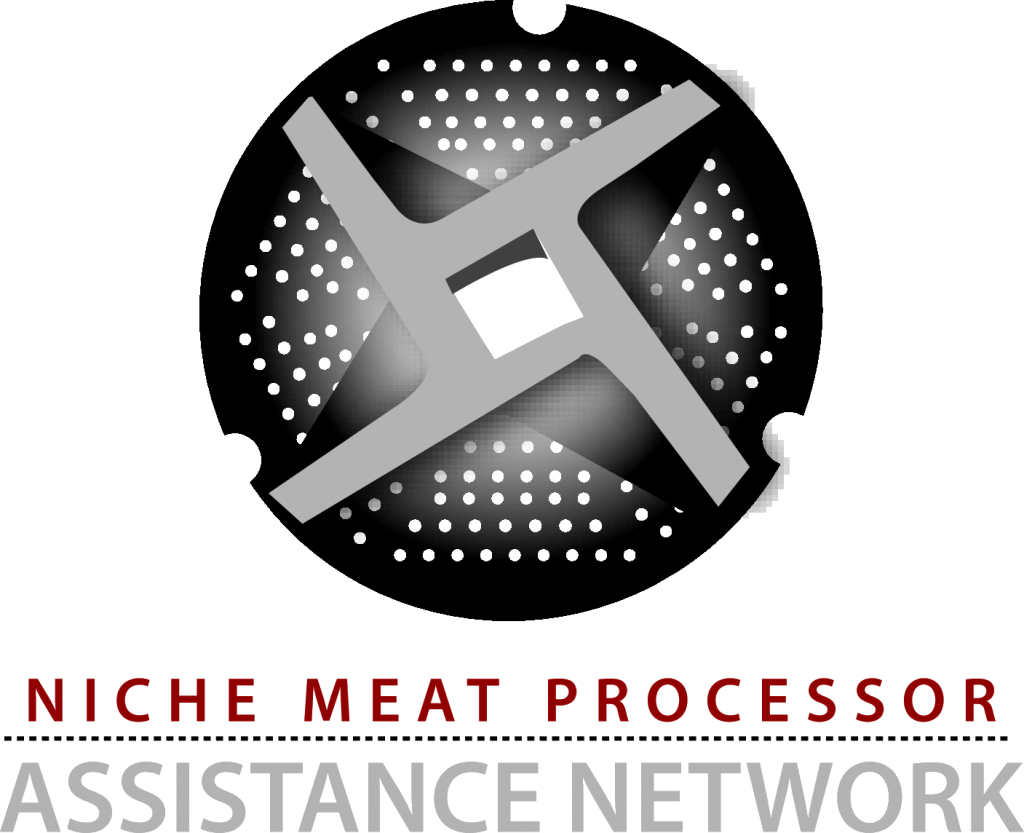All of these case studies include photos, and some include actual unit designs.
Island Grown Farmers Cooperative
The IGFC unit was the first USDA-inspected mobile slaughter unit in the U.S., in the San Juan Islands of Washington State.
Kentucky Mobile Poultry Processing Unit
The University of Kentucky makes their mobile poultry processing unit available to Kentucky producers, who are trained in food safety before using it. This unit was featured in a 2012 NMPAN webinar on mobile poultry processing units.
Coast Grown Mobile Harvest Unit
This USDA-inspected MSU for red meat species, located in the Central Coast region of California, began operations in mid-2009, stopped, re-started in the spring/summer of 2011, stopped in Spring 2012 for repairs, and as of Fall 2012 was back on the road, serving the region’s ranchers.
Hudson Valley Poultry Processing
The builder/operator of this mobile poultry processing unit in New York designed it to be used by other, licensed producers to process their own birds for sale. In 2011, he stopped processing for other producers: at the price producers were willing to pay, processing revenue did not cover processing costs (including transactions costs).
Spring Hill Poultry Processing
This mobile poultry processing unit was built by the state of Vermont as a prototype and was leased by a private operator. It transitioned to new owner/operators in 2012. This unit was featured in a 2012 NMPAN webinar on mobile poultry processing units.
User’s Guide to Montana Mobile Poultry Processing Unit (MPPU)
While not a case study exactly, this comprehensive guidebook explains how the Montana Poultry Growers Cooperative’s MPPU is designed to work. Each producer-member may process up to 20,000 birds per year using the MPPU. The guide covers: exemptions; labeling, licensing, and marketing; site requirements; GMPs, SSOPs, HACCP, SOPs; and record keeping. The unit has faced regulatory challenges, primarily at the county level. The unit was featured in a 2012 NMPAN webinar on mobile poultry processing units.
Puget Sound Meat Producers Cooperative
Based in Tacoma, Washington, the PSMPC is a non-profit cooperative. They lease their USDA-inspected mobile slaughter unit from the local conservation district. The first animals were slaughtered in the unit in October 2009. This case study was updated in April 2012.
Ranch Foods Direct and Renewable Harvest
2012 Case Study: Renewable Harvest, a national non-profit organization based in Nebraska, built and owns a USDA-inspected MSU, which is operated by Ranch Foods Direct, a USDA-inspected cut and wrap processor in Colorado Springs. The MSU began inspected operations in 2011.
2013 Case Study: In 2013, we visited with Ranch Foods Direct again for our From Convenience to Commitment: Securing the Long-Term Viability of Local Meat and Poultry Processing research report. This 2013 case study is an excerpt from that report.
Modular Harvest System (NY)
The Modular Harvest System, a four-part mobile slaughter unit, was built by the non-profit Glynwood Center to expand access to inspected slaughter in New York’s Hudson Valley. Initial inspected operations in 2010 taught the first operators enough about the business to build their own on-farm inspected slaughter and processing plant. Based on this experience, the MHS is now transitioning to a business incubator model, to help other farmers learn the processing business.


